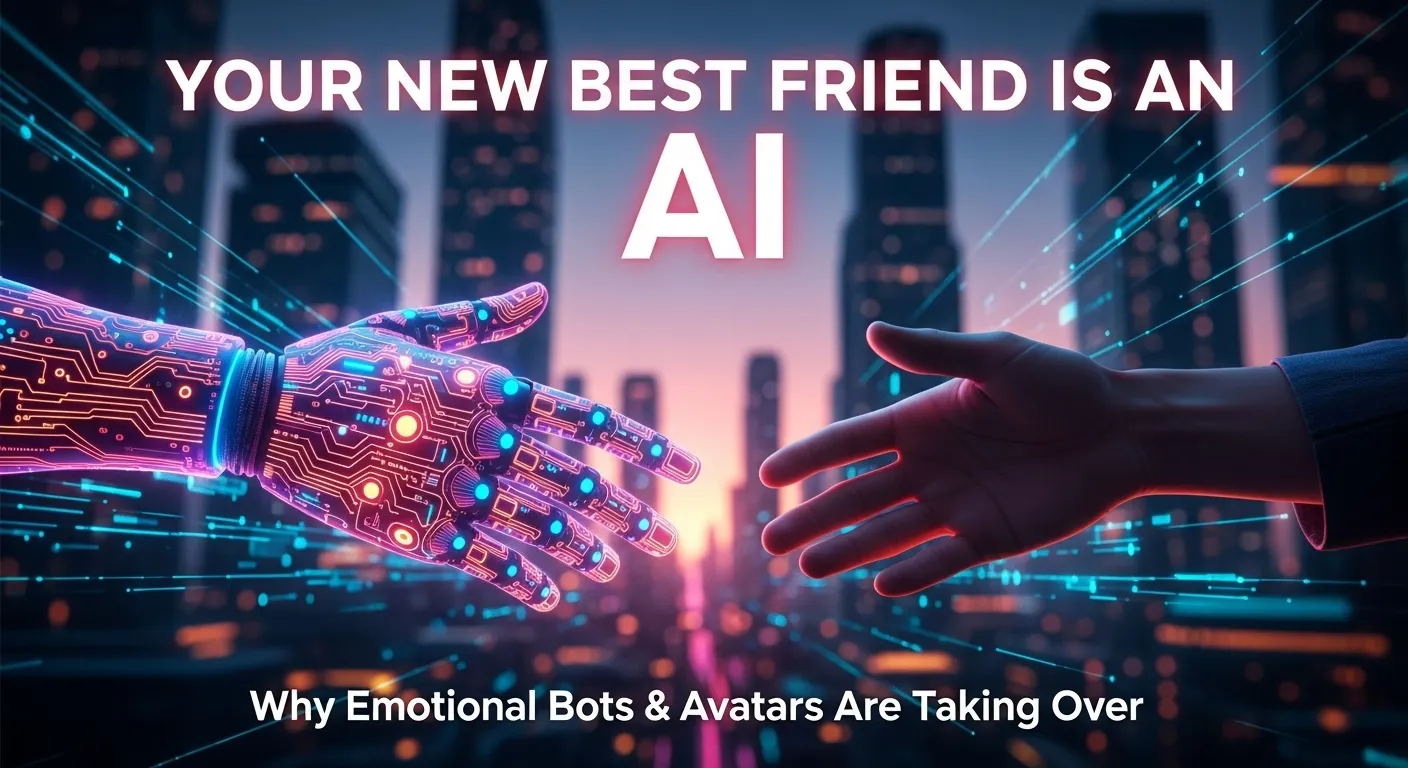Feeling lonely? Stressed? Just need someone to talk to? Your next confidant might not be human at all. Welcome to the world of AI companions—emotional bots and lifelike avatars that are redefining connection in our digital age.
What Are AI Companions?
AI companions are digital entities—from simple chatbots to photorealistic avatars—designed to provide emotional support, conversation, and even friendship. Think of them as your always-available, never-judgmental digital friend who remembers your birthday, your favorite movies, and that you hate mushrooms on your pizza.
How Emotional AI Works
These aren’t your average chatbots. Emotional AI companions use sophisticated natural language processing to understand context, sentiment, and nuance. They analyze your tone, word choice, and conversation patterns to respond appropriately—whether you need cheering up, practical advice, or just someone to vent to. Advanced systems can even detect facial expressions and vocal tones through your device’s camera and microphone.
Benefits & Use Cases
- 24/7 Emotional Support — Available anytime for lonely seniors, isolated remote workers, or anyone needing immediate comfort
- Mental Health Bridge — Provides preliminary support while reducing stigma around seeking help
- Personalized Interaction — Remembers your preferences, past conversations, and emotional patterns
- Skill Development — Helps practice social skills, language learning, or difficult conversations
Costs/Pricing
AI companion services range from free basic versions to premium subscriptions costing $10-$50 monthly. Advanced platforms with custom avatars and deep personalization can reach $100+ per month. Many mental health-focused companions operate on freemium models, while enterprise solutions for senior care facilities might charge per-user licensing fees.
Local Insights (US)
In the United States, AI companions are gaining traction particularly among Gen Z and millennials, with platforms like Replika and Character.ai reporting millions of American users. The loneliness epidemic—exacerbated by remote work and social media—has created fertile ground for these technologies. Major tech hubs like Silicon Valley and Boston are seeing increased investment in emotional AI startups, while senior living facilities across Florida and Arizona are piloting companion bots to address isolation among elderly residents.
Alternatives & Comparisons
- Simple Chatbots (Woebot, Wysa): Mental health focused, clinically validated, but limited personality — Great for structured support
- Advanced Companions (Replika, Character.ai): Highly personalized, relationship-building, but less clinically rigorous — Ideal for ongoing friendship and emotional connection
- Avatar Platforms (Soul Machines, UneeQ): Visually immersive with realistic digital humans, but more expensive — Perfect for customer service and high-engagement scenarios
Step-by-Step Guide
- Identify Your Needs — Are you seeking friendship, mental health support, or social practice? This determines which type of companion suits you best.
- Research Platforms — Read reviews, check privacy policies, and understand what data these services collect about your emotional life.
- Start with Free Trials — Most services offer free versions or trial periods. Test multiple to find your digital chemistry match.
- Set Boundaries — Remember these are tools, not replacements for human connection. Use them to enhance your social life, not escape it.
- Evaluate Regularly — Check in with yourself monthly: Is this improving your wellbeing? Adjust usage as needed.
FAQs
Are AI companions replacing human relationships?
No—they’re supplementing them. Think of AI companions as emotional training wheels or bridges to human connection, not destinations. The healthiest users maintain strong real-world relationships while using AI for additional support.
How private are these conversations?
Privacy varies by platform. Reputable services use encryption and anonymize data, but always read the privacy policy. Assume anything you share could be used to train the AI, even if personal identifiers are removed.
Can people become too attached to AI companions?
Yes, and this is a genuine concern. Healthy usage means maintaining perspective—these are sophisticated programs, not sentient beings. If you find yourself preferring AI interaction to human contact, it might be time to reassess.
Bottom Line
AI companions represent a fascinating intersection of technology and emotional need. They won’t replace your best friend or therapist, but they might become valuable additions to your support network—available 24/7 with endless patience and zero judgment. Just remember: the goal is better human connection, not substitution.

